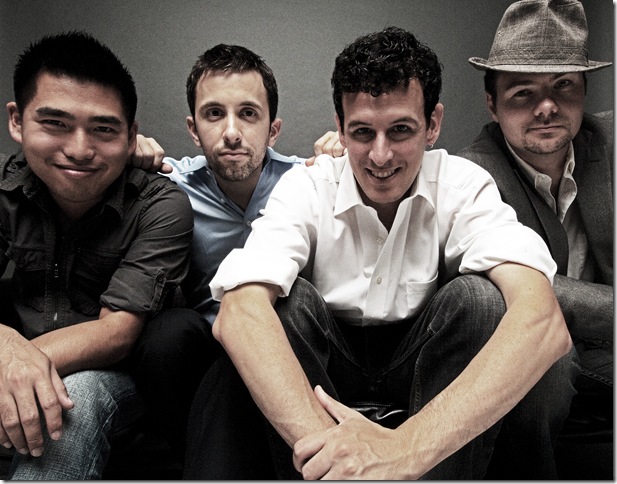For all the praise that has been lavished on Franz Schubert’s shade for the past two centuries, his skill at string quartet writing is sometimes underappreciated.
The earliest of his quartets are often dismissed as half-successful attempts at imitating Beethoven and Haydn, but I’ve yet to hear any quartet of his that didn’t contain some substantial moments of freshness and beauty. And while the Death and the Maiden Quartet is justly well-known, it’s the quartet that came next, the No. 15 (in G, D. 887, and his last), that in its beauty and mellifluous confidence shows a composer who has arrived, who is confident about his materials and able to make them do his songful bidding.
On Wednesday afternoon at the Duncan Theatre’s Stage West, the Classical Café series closed with a performance by the Euclid Quartet, founded originally in Cleveland and now based at Indiana University-South Bend. The Euclids closed the concert with this Schubert work on a program that also included music by Haydn and Puccini.
The quartet — violinists Jameson Cooper and Jacob Murphy, violist Luis Vargas and cellist Si-Yan Darren Li — played with thorough professionalism with and a rough-and-ready kind of personality that was highly expressive and compelling. It also had a considerable number of ensemble ragged edges, here in the Schubert and in the first half of the concert, which was surprising for a quartet of this caliber but not ultimately too distracting.
The first movement, like much of the work, has a wide variety of moods and sudden changes, and the Euclids did a good job of keeping a narrative in place in music that can sound random without it. Here, it sounded exciting and daring. In the second movement, cellist Li played the main theme with great beauty and tenderness, laying down the notes with stellar precision and a maximum of heartfelt emotion. He and his colleagues played the middle section with violence and power, making a standout contrast to the rest of the movement.
The Scherzo was not as fast as some versions I’ve heard, which probably helped its accuracy, and the Trio was prettiness itself, with a lovely reading by Li and Cooper. In the Finale, the word of the day was “drive,” and the Euclids pushed the music relentlessly home, with forcefulness but without losing track of a certain light bounce the movement needs to be effective.
The opening work on Wednesday’s program was the Quartet No. 61 (in D minor, Hob. III: 76) of Haydn, usually known as the Fifths Quartet for the first movement’s main theme, which is built out of two dropping fifths inside an octave. The Euclids played this full-bloodedly, with accompaniment figures sharp and bright rather than light and delicate, and that gave the music a strong sense of urgency. First violinist Cooper was nimble-fingered and fluid in the scampering virtuoso figures on top, but his intonation was sometimes hit-and-miss.
He was more on point for the second movement, with its graceful, floating variations of the primary theme, and here again, the accompaniment was subsidiary but not inconsequential; the other members of the quartet played with satisfying fullness.
The Minuet was tense and almost savage, with the players digging into the canonic-flavored theme with real gusto, then contrasted it very ably with the wonderful Trio, music that keeps the listener guessing with sudden dynamic shocks and surprise key changes. The Finale was admirably quick-footed and engaging to listen to, but again there were some over-exuberant ensemble moments where the proceedings sounded somewhat rough-edged. For the most part, though, this was aggressive, athletic Haydn, music for the outdoors, with the peruke left safely at home on a peg.
The Haydn was followed by Crisantemi, the miniature by Giacomo Puccini, written in 1890 while he was working on Manon Lescaut. Although he devoted his life to music for the theater, famously saying he was following a command from God to focus only on that genre, surely he was wrong: Puccini could easily have written fine instrumental music, and Crisantemi, while a bit too purple in its emotions, is the work of a composer who knew how to write effective music for the quartet medium.
To their great credit, the Euclid Quartet members did not overdo it, letting the music make its point through its sheer darkness and sorrowful melody, and by keeping a scrupulous balance among all the instruments, made it much more effective thereby. It was a lovely performance, and brought an audible sigh from several members of the relatively large audience in the Stage West theater.
As an encore, the Euclid played tango master Carlos Gardel’s well-known Por una cabeza, bringing to bear on this pleasant piece all the strength and muscle they’d shown in the Haydn and Schubert, and brought it across winningly.
